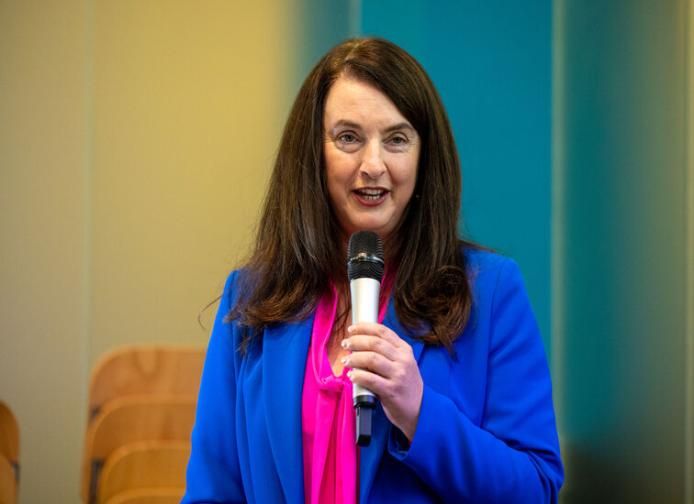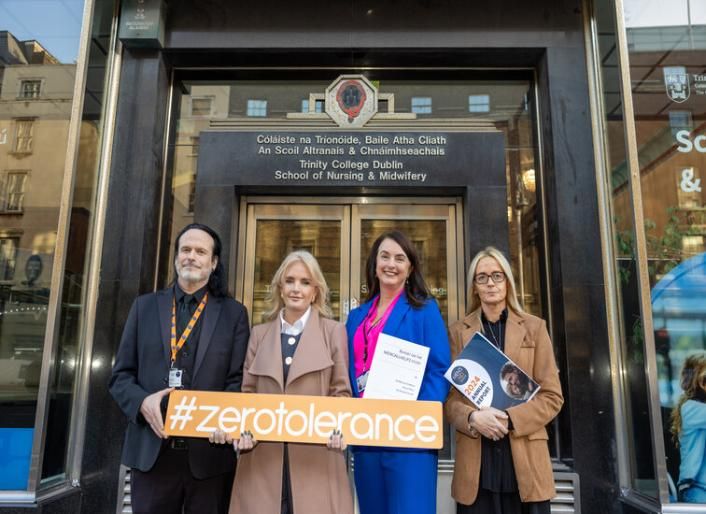Male vulnerability still ridiculed in contemporary societies, making it difficult for abused men to seek support
Posted on: 19 November 2025
A new study, called the MENCALLHELP2 project, has explored the content, nature and characteristics of call data received by the Men’s Aid Ireland national helpline service over one calendar year (2022)
Domestic Violence and Abuse (DVA) is a serious societal problem which negatively affects the health and wellbeing of those who experience it. Traditionally this has been viewed as something perpetrated by men and experienced by women. This makes it difficult for male victims to recognise abuse and seek support.
Researchers at the School of Nursing and Midwifery at Trinity College Dublin have undertaken this research because there is very little research done in the area of male victimisation in Ireland. This study examined a retrospective analysis of 7132 contacts to Men’s Aid Ireland in 2022, using sequential mixed methods of inquiry, firstly analysing numerical followed by text-based data. The study is published on the School’s website and at a conference in the School.
Men’s Aid Ireland empowers and supports men and their families experiencing domestic violence to be safe.

Dr. Melissa Corbally, Associate Professor in General Nursing (pictured above), explained the study:
“This study provides unique insights into the profile of male abuse victims as well as identifying some at risk groups within a national service dedicated to men. Domestic Violence and Abuse is a serious problem and in patriarchal societies the idea of male vulnerability gets ridiculed, making it very difficult for abused men to seek support.”
KEY FINDINGS FROM THE STUDY
Of the 7132 clients, 1232 reported DVA experiences with 93.1% perpetrated by a female partner. 85% reported experiencing more than one form of abuse. 73.1% reported 2-4 types of abuse with 11.9% reporting 5 or more types of abuse. Concerned individuals also contacted the service on behalf of men.
The most prevalent abuse types were emotional abuse (86.1%) psychological abuse (69.3%), physical abuse (36.9%), coercive control (30%), parental alienation (26.3%) and economic abuse (20.3%). Unstable living conditions, fatherhood and frequent contacts to the service were associated with higher odds of abuse.
Notes relating to 2200 contacts to the service were also analysed (e.g. emails, call records, one to one meetings or outreach services). The experience of DVA was found to be complex and multifaceted with multiple forms of abuse as well as multiple service needs recorded. The health impact was mostly psychological. Information, legal related support, and empathetic listening were the most commonly provided services by Men’ Aid staff.
RECOMMENDATIONS: the study suggests that:
- A national set of working definitions of all types and variations of DVA across genders be developed to ensure consistent comparison across agencies
- Services pay particular attention to callers living in unstable living arrangements and callers contacting the service on multiple occasions due to higher DVA risks
- A caller ID or a reference code be given to anonymous callers to enable the potential development of a ‘client’ profile and to benefit from continuity of service and further analysis. Future research needs to explore this anonymous dataset as a priority
- Future research examines health outcomes as well as how men and concerned others articulate the frequency, severity and escalation of the male abuse experience

Jim O’Callaghan TD, Minister for Justice, Home Affairs and Migration (above) , said:
“MenCallHelp shines a light on a side of domestic abuse that too often goes unseen. In a society shaped by traditional ideas of masculinity, reaching out for support as a man can feel impossible because their vulnerability is dismissed or ridiculed.
“This research gives us a clear understanding of who is affected and the barriers they face in seeking help. It shows how services can respond effectively, with evidence, compassion, and respect at their core.
“Its findings fill a critical gap in national knowledge and provide guidance for Government policy and practice under the Zero Tolerance Strategy.
“MenCallHelp reminds us, that challenging stigma, listening carefully, and acting decisively are responsibilities that fall to both society and Government alike.”
Shane Kelly, CEO, Men’s Aid Ireland, said:
“Male victims of domestic abuse remain largely unseen, not because their experiences are less real, but because embarrassment, shame and the fear of not being believed often silence them. This research brings those hidden experiences into view and reflects what our frontline staff encounter every day: men who are frightened, isolated, and unsure where to turn.
“Our hope is that these findings challenge outdated attitudes and support the development of services and policies that recognise the reality of abuse in all its forms. Every victim, regardless of gender, deserves to be supported and safe.”
 Shane Kelly (CEO, Men's Aid Ireland, Karen Ryan, Dr Melissa Corbally, Lynn Ryan
Shane Kelly (CEO, Men's Aid Ireland, Karen Ryan, Dr Melissa Corbally, Lynn Ryan
Dr. Melissa Corbally, concluded:
“This study contributes to the national policy of Zero Tolerance by strengthening the knowledge base surrounding male victimisation as well as influencing frontline service provision.
“How we define abuse is of crucial importance if we are to generate comparable European data at a national level. It is crucial that we carefully consider how we define the experience of intimate partner violence and abuse for everyone.
“There is a need for more research in this area for greater understanding of the gendered experience of violence and service provision to ensure that service delivery is non-judgemental, evidence-based and meets the needs of vulnerable individuals.”
READ: You can read the full paper at the following link: https://www.tcd.ie/media/tcd/nursing-midwifery/pdfs/MENCALLHELP2FINALREPORTAMENDED.pdf
Media Contact:
Ciara O’Shea | Media Relations | coshea9@tcd.ie | +353 1 896 4204
